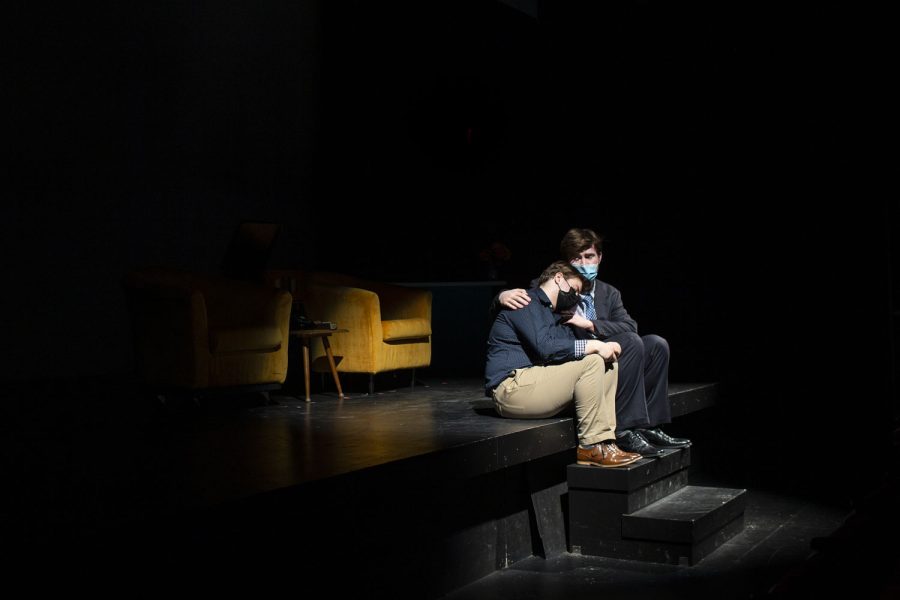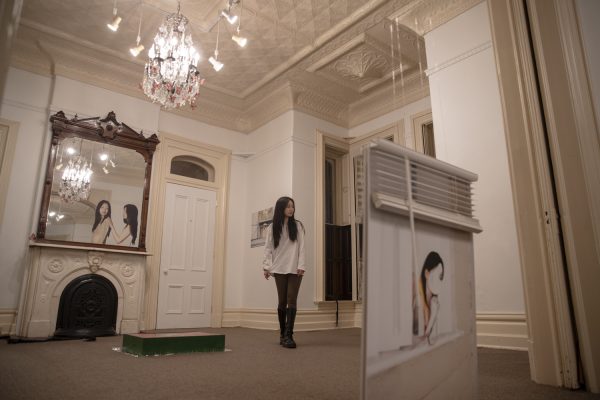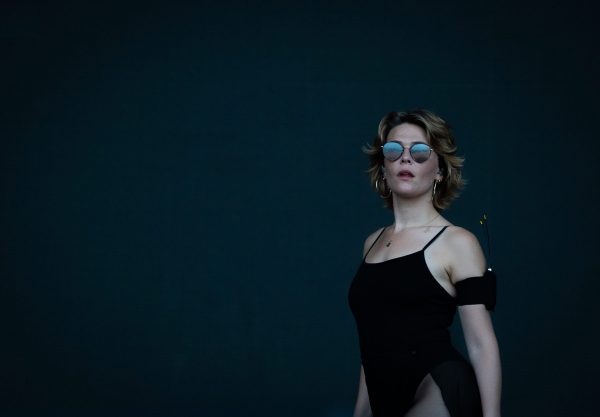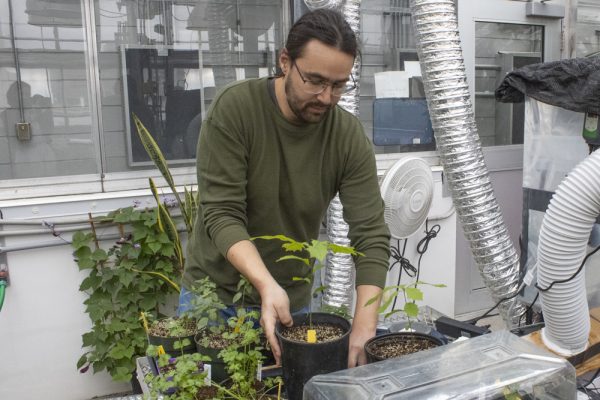UI Theatre navigates society’s “normal” through ‘I Saw You/New Person’
About 30 viewers attended the opening night of the University of Iowa’s latest theater production, I Saw You/New Person, to experience messages surrounding gender and sexuality, while exploring society’s idea of what is “normal.”
Paul, played by John Orlet, and Sidney, played by Grason Block, hug during a dress rehearsal of “I Saw You/New Person” at MacVey Theatre in the University of Iowa’s Theatre Building on Wednesday, March 9, 2022. “I Saw You/New Person,” which explores sexuality and identity in a 1950s trope-filled world, will perform in front of an audience on Friday, March 11, and Saturday, March 12.
March 11, 2022
The diligent husband, the attractive secretary, the nutty housewife — using 1950s tropes, the University of Iowa Theatre Department’s most recent play explores society’s idea of “normal” through a message centered on gender and sexuality. I Saw You/New Person opened the night of March 11, and will put on its second and third show Saturday, March 12.
I Saw You/New Person navigates the idea of heteronormativity through two husbands: Paul, played by John Orlet, and Sidney, played by Grayson Block, as they attempt to come to terms with their own identities in a 1950s-adjacent world. UI first-year Sara Alvidrez plays the character of Lucille, Paul’s attractive secretary, in the production.
“What is normal for society doesn’t mean it’s right for you,” Alvidrez said.
Throughout the play, Lucille repeatedly attempts to win Paul’s affection, which causes conflict between the husbands.
“No matter how normal [Paul] wants to be,” Alvidrez said. “His love resides with his husband, and I think that’s really deep.”
RELATED: Secret Standup comedy show revived through Willow Creek Theatre
UI third-year and director of I Saw You/New Person Meg Mechelke said the play moves past a typical “coming-out story” by showcasing the constant presence of homophobia for many members of the LGBTQ+ community, both before and after coming out.
“It’s an angle on gay life and Queer life that sometimes gets left out,” Mechelke said.
Mechelke said she hoped the play would give potential LGBTQ+ audience members a place to feel noticed and understood.
“I would love for them to feel seen by this play, to feel heard by this play, and to feel like there is hope in this play,” Mechelke said.
For many attendees, including UI first-year Andrew Hurley, who identifies as homosexual, that’s exactly what the play did. Hurley said he enjoyed seeing the side of the story where stereotypes influence other people, and how society’s “normal” affects members of the LGBTQ+ community.
“The story really hit a lot closer to home than I thought it would,” Hurley said. “It’s really nice to see that kind of representation shown in theater.”
Attendee Natalie Mahalla, a first-year student at Ohio State University who identifies as bisexual, said the play struck a chord inside her. Mahalla said she struggled to come out because of societal pressures and how she felt the world would perceive her, so she enjoyed the aspect of realism within the play.
“It was so wonderful to see it through such a lens that, like, highlighted just the absolute worst and like the best parts of being within like the LGBTQ community,” Mahalla said.
Attendee and UI student Anna Ottavi said that as someone who identifies as lesbian, she resonated with the thoughtfully-written characters and themes.
“At the end of the day, you know, love is one of the things that can sort of overcome [societal pressures] and make you feel like yourself, even when society’s telling you not to,” Ottavi said.















